CARL JACKSON knows Augusta like no one else.
The legendary caddie, who carried bags at Augusta National a record 54 times, helped Ben Crenshaw win the fabled green jacket twice.
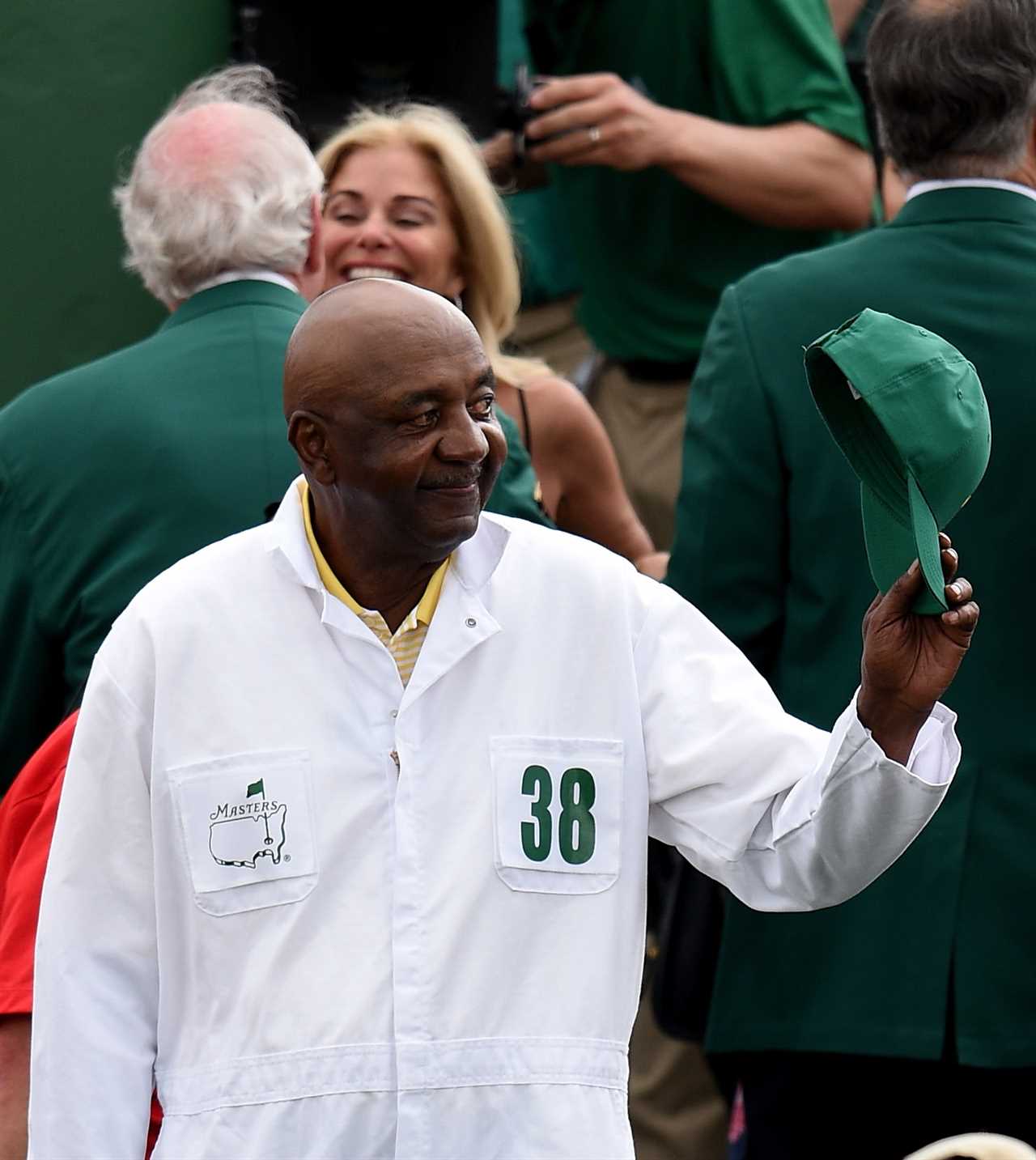
Carl Jackson is an Augusta icon after caddying for 54 Masters tournaments
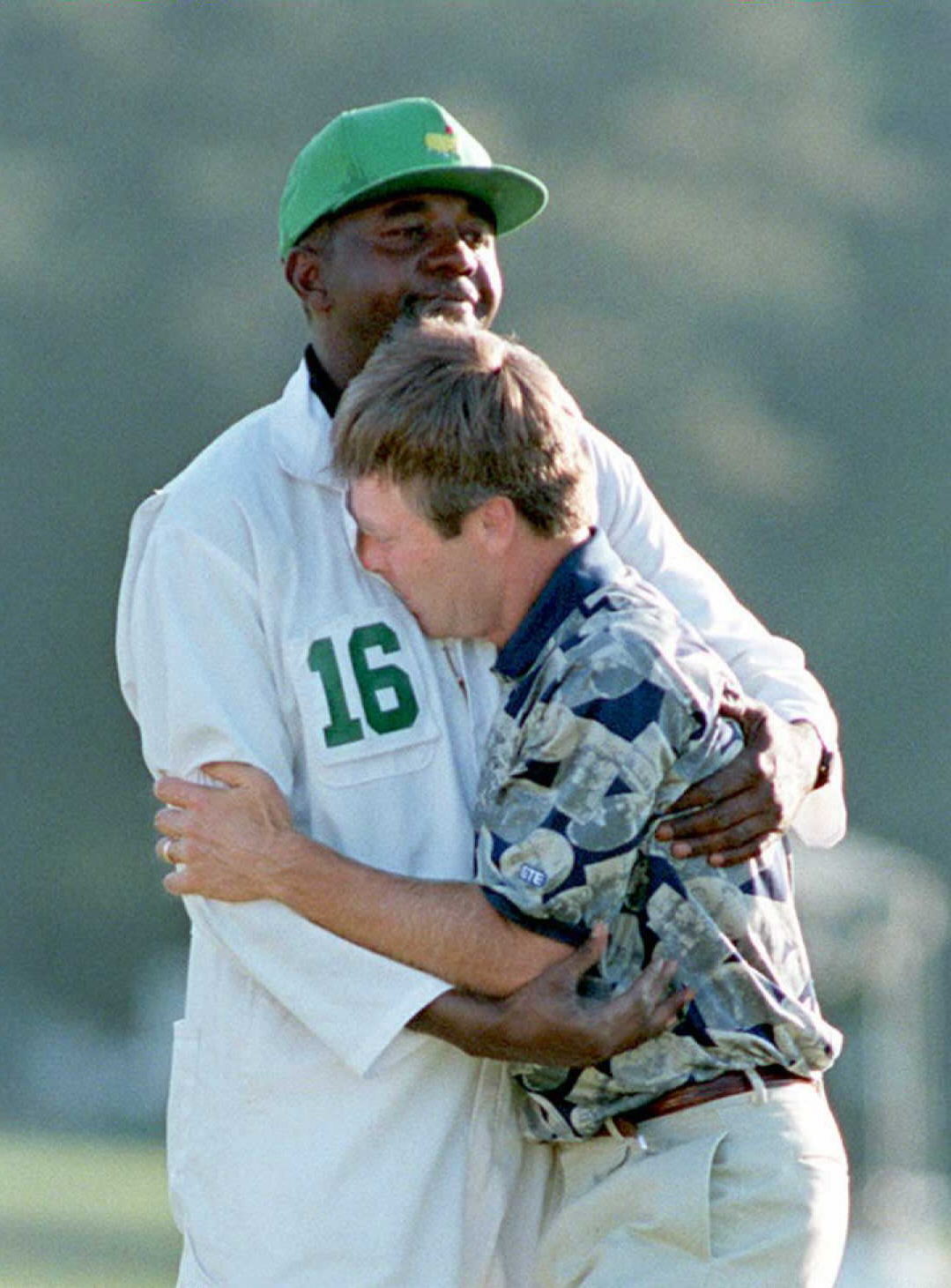
This famous image of Ben Crenshaw hugging Jackson in 1995 transcended sport
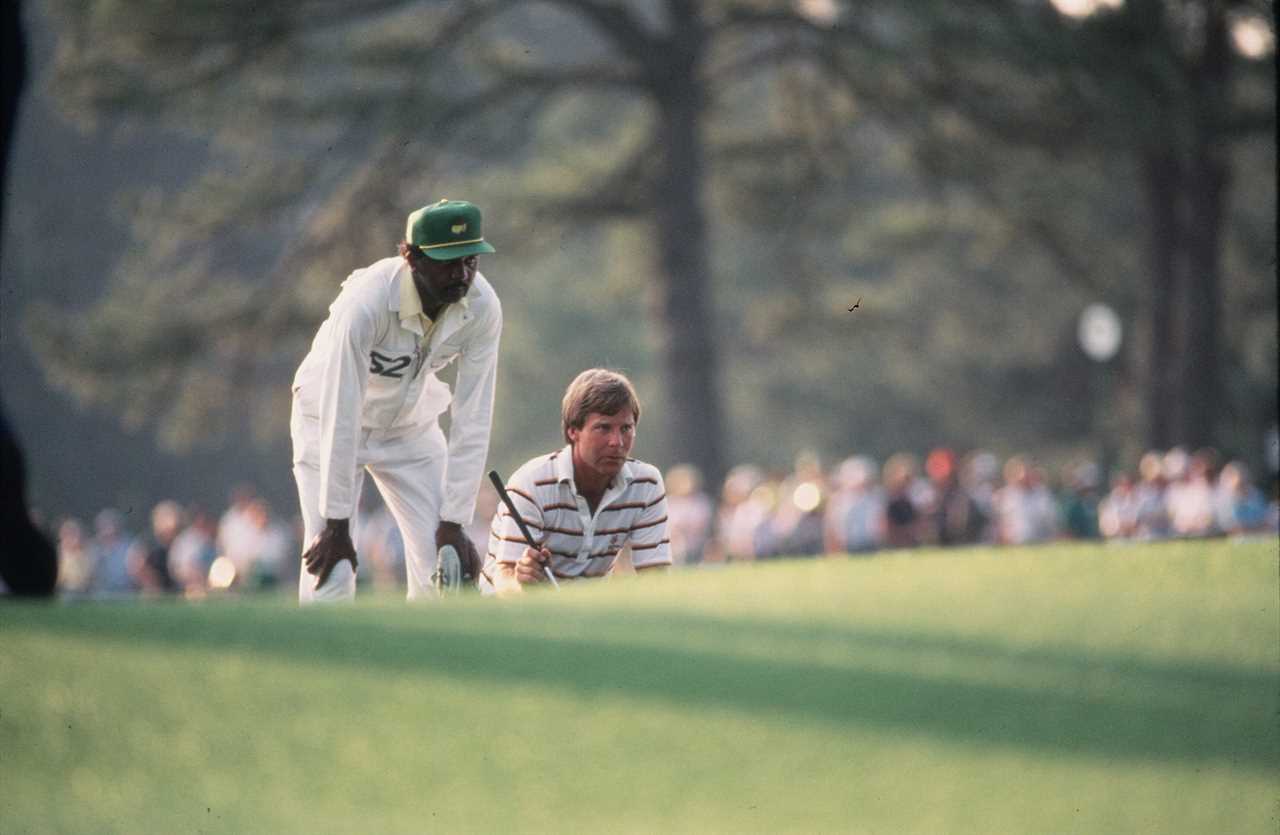
Jackson knows the Augusta greens better than most
Those incredible triumphs in 1984 and 1995 are just one chapter in Jackson’s extraordinary life story, which has been beautifully documented in the award-winning film Rise Up.
Now 78, and living in Arkansas, Jackson admits to SunSport that every April, when the Masters rolls around, his mind is transported back to his glory days, helping Texan Crenshaw stun the sporting world with the first of his two career-defining championships.
He is admirably able to cast aside any burning resentment about falling out with the organisers at Augusta National who have stopped credentialing him for golf’s most iconic major.
Jackson, who retired in 2015, refuses to elaborate on the details of his shameful snub.
But he’s happy to reflect on his humble beginnings living on the wrong side of the tracks in Augusta – a deeply divided part of the United States where racial inequality was rampant.
Desperate to help his mother make ends meet in the poverty-stricken African American enclave of Sand Hill — after realising she was toiling all day for just $5 — Jackson quit school and began working at the most famous golf course in the world at the tender age of 14.
One day, while walking home from school, the caddie master spotted Jackson and made him an offer that would change his life.
He never looked back.
Soon enough, Jackson’s pay increased to $100 per bag, and the work became steady after he met Augusta member Jack Stephens, one of the wealthiest men in America at the time and chairman of Augusta National.
That relationship lasted a lifetime.
Jackson ended up working for Stephens at his residence in Arkansas, but every spring, he returned to Augusta.
The local kid from Sand Hill found himself rubbing shoulders with the greats, including United States President Dwight Eisenhower.
While modern pros often travel with their own caddies, back in the day, Augusta National relied purely on locals, a tradition that began in 1934 and lasted for decades.
Until 1983, only black caddies worked the bags of the world’s finest players.
There was a good reason – Jackson and his pals knew every blade of grass.
After learning from course legend Pappy Stokes, who had witnessed the greens being constructed, Jackson gained invaluable insight passed down through generations.
Filmmaker Maryilene Blondell said: “Carl’s era of caddies — it was all instinct. It was all feel.
“And that’s a skill set that’s gone. It’s a different game now.”
Helping players conquer some of golf’s most challenging holes wasn’t the hard part for Jackson.
GEORGIA’S RACIAL DIVIDE
Jackson told SunSport: “What was difficult was trying to get to the golf course each day.
“Some days, the city had a truant officer driving around looking for boys who were skipping school. I had to run from that man many times.
“I’d sneak through different neighborhoods, houses and streets just to get to the course.”
Jackson, who was skilled with a club and became the first black golfer as a guest of a member to walk Augusta’s legendary lush greens, found a way to provide for his family.
Yet the racial divide in Georgia continued to create alarming, life-threatening situations.
Augusta didn’t have a black competitor until 1975, and no person of colour became a member until 1990.
A staggering 90 per cent of the original group of caddies were locals.
Standing at 6ft 5ins, Jackson cut an imposing figure on the course.
Yet his presence meant more than just handing out clubs and passing on advice – it inspired a generation.
He recalled: “One time, we had a riot in Augusta.
“I was 20 years old and a friend of mine went out into the riot and came back an hour later — he had been shot.
“I knew I wasn’t going out there. A young black kid died in jail that night.
“You have to pick yourself up and move forward.”
Blondell noted: “The catalyst for the Civil Rights Movement really started in Augusta.”
Five days before Martin Luther King Jr was assassinated in 1968, he spoke in Augusta.
Blondell, who documented Jackson’s remarkable rise, understands that his 50 years as a caddie represented something seismic.
She said: “Imagine this: all the caddies at Augusta were black.
“All the players at Augusta were white — rich, white guys, right? Educated, white guys.
“Think about the fact that they had to — whatever inherent or subconscious prejudices they had — listen to black caddies telling them what to do.
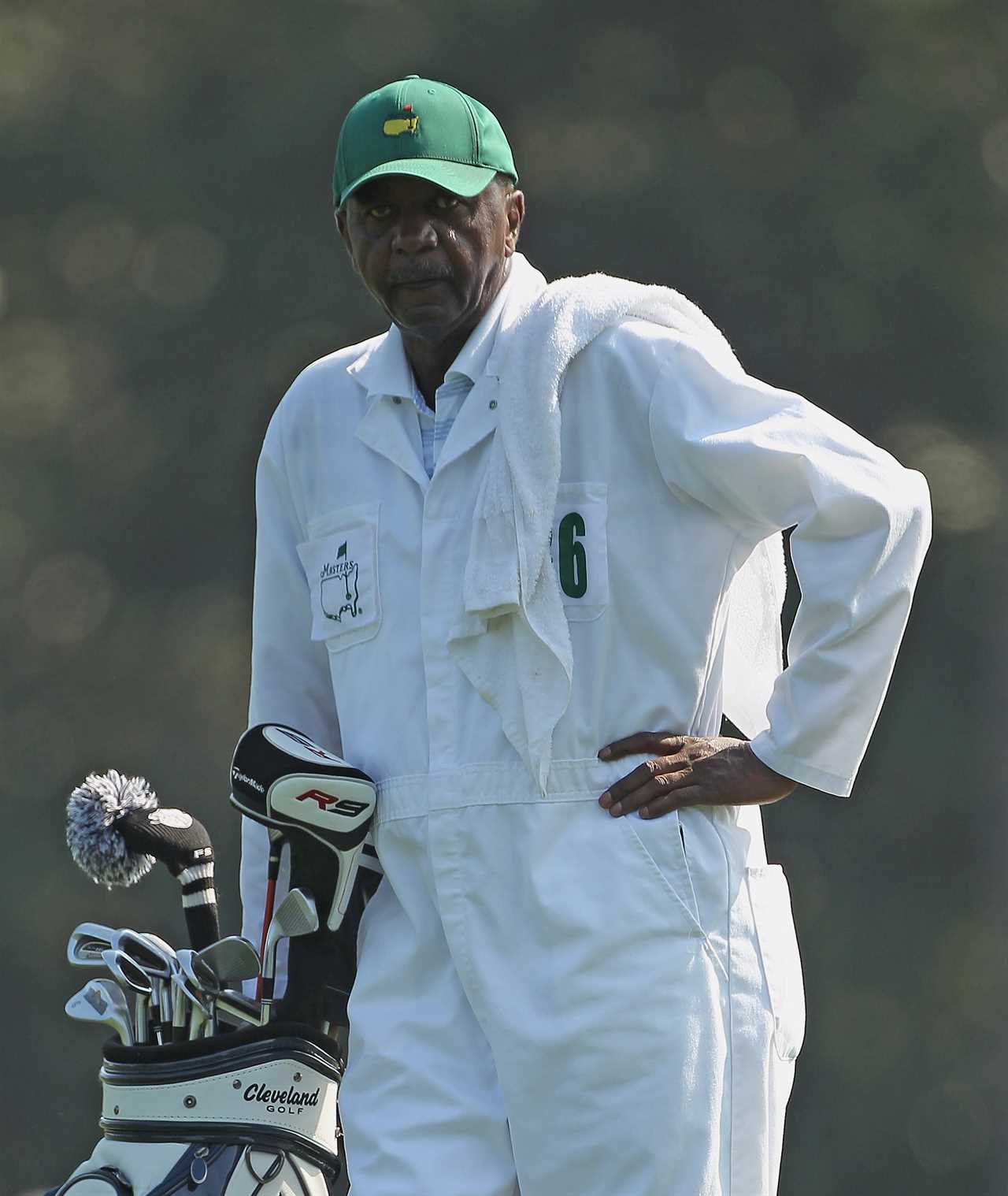
For many years, only black caddies worked at Augusta
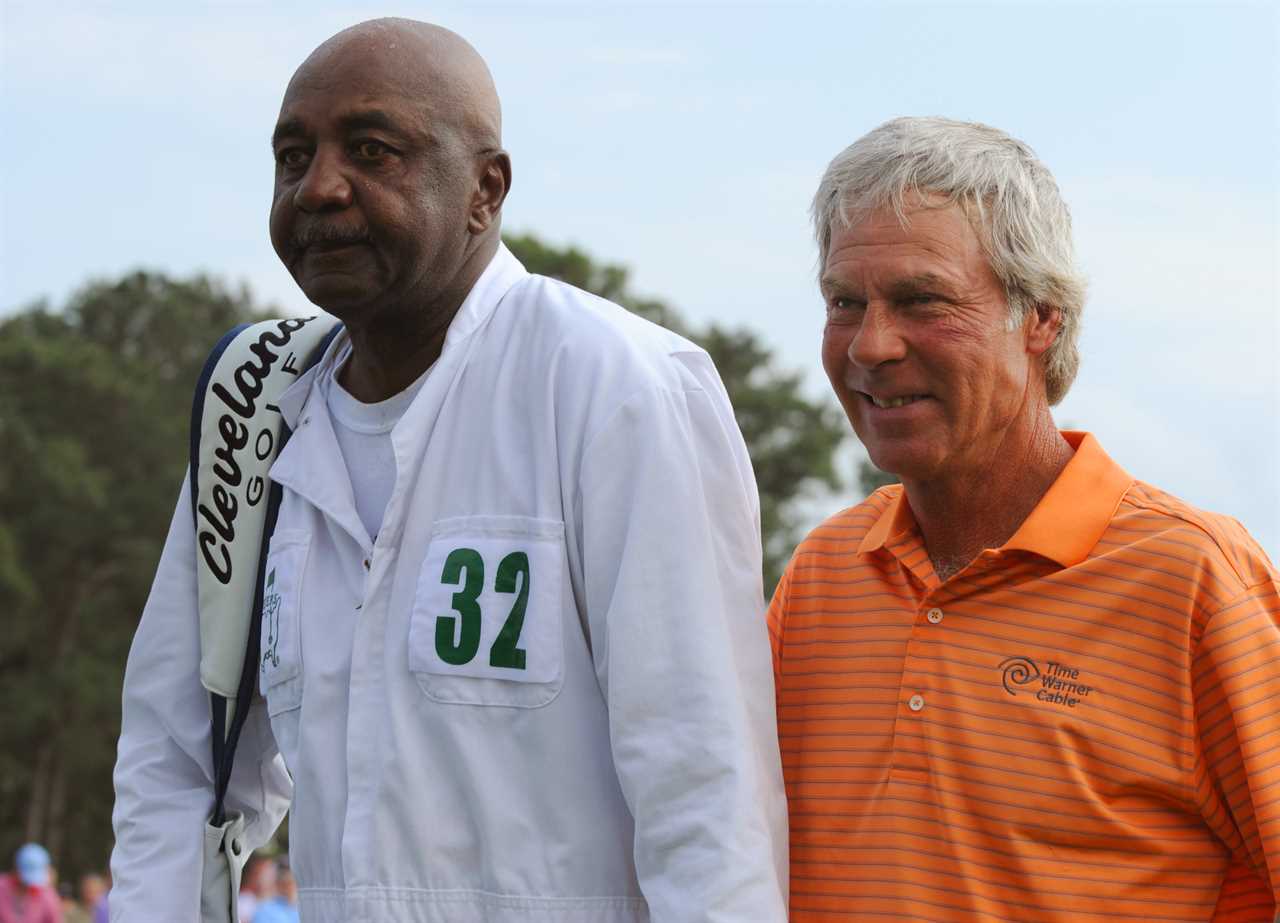
Crenshaw won two green jackets – in 1984 and 1995
“It was, in a sense, an upside-down paradigm, where the black caddie had the knowledge, the power, and was really in charge.”
Jackson, who was going to be played by Hollywood star Denzel Washington in a film before Blondell stepped in, recalls that at least 50 of his local friends were fixtures on Augusta’s hallowed greens, many waiting on the other side of the fence for their call to come.
The most memorable moment of his career came when Crenshaw won his second Masters crown 30 years ago.
The pressure was overwhelming.
When the winning putt was sunk, Crenshaw let everything out.
The iconic image of Jackson hugging Crenshaw remains one of the tournament’s most memorable moments.
Blondell said: “That win wasn’t just about Ben winning.
“It was about everything it represented — loss, pain, resilience, love, humanity. It transcended sport.”
‘RESILIENCE AND LOVE’
Jackson has been watching from afar for the last ten years.
He says the writing was on the wall after he was denied a post-round cocktail during the 50th year of his Masters run.
In 2023, he revealed to local Augusta media that he had been denied a pass for the tournament.
He will return briefly this week – after plenty of pleading from Crenshaw – to witness the unveiling of a mural celebrating the tournament’s rich local black history.
But with his Carl Jackson Foundation helping disadvantaged kids find solace on the golf course, there is plenty to keep him busy.
Though the abrupt ending of his storied association with Augusta National feels bittersweet, Blondell sees it differently.
She said: “It didn’t end negatively.
“Carl’s legacy is ‘Rise Above.’
“Through the grace of God, I met Carl, and we set out to tell his story honestly and inspire people.
“His story isn’t about an ending — it’s about resilience and love.”
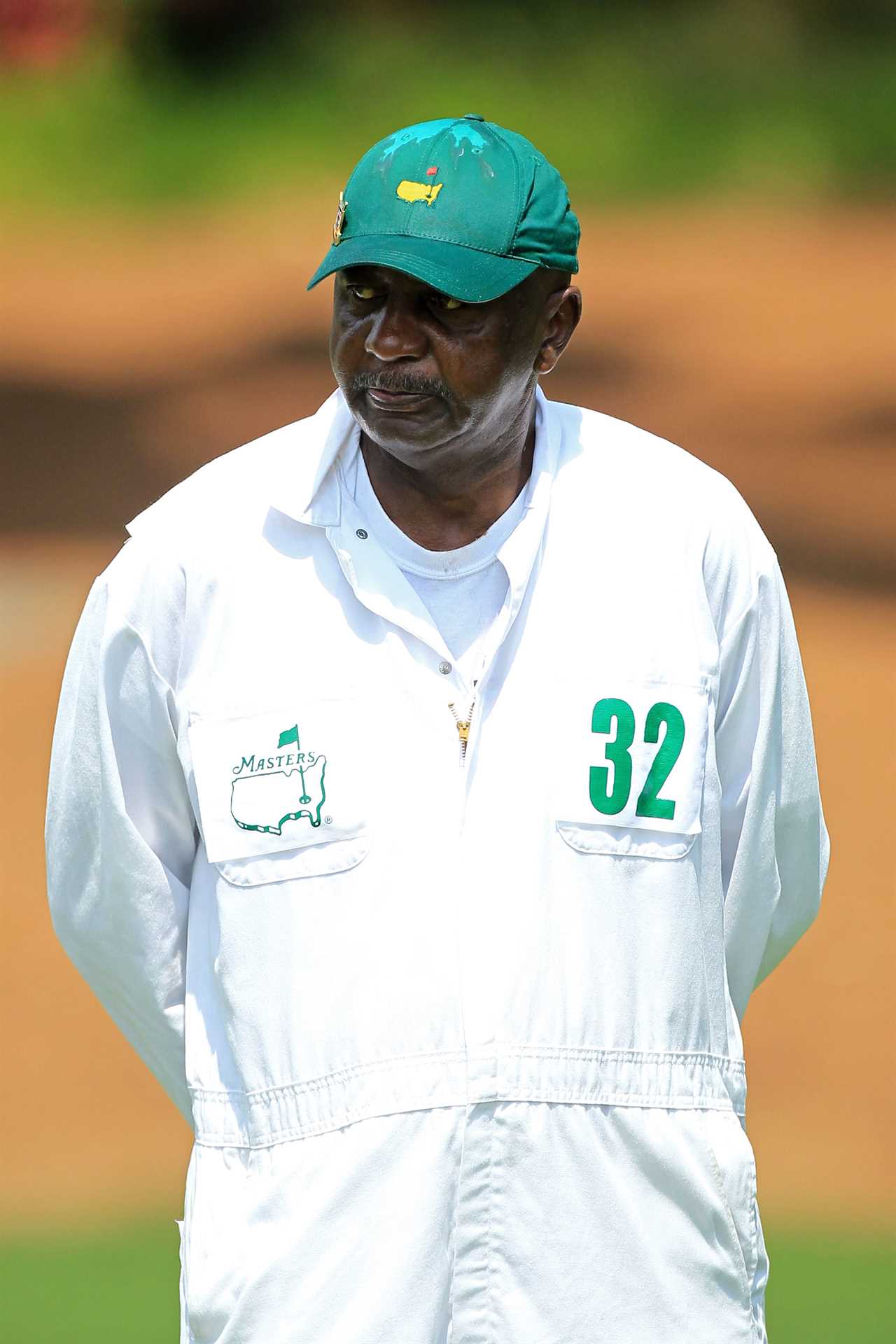
Augusta cut ties with Jackson and refuse to credit him any longer
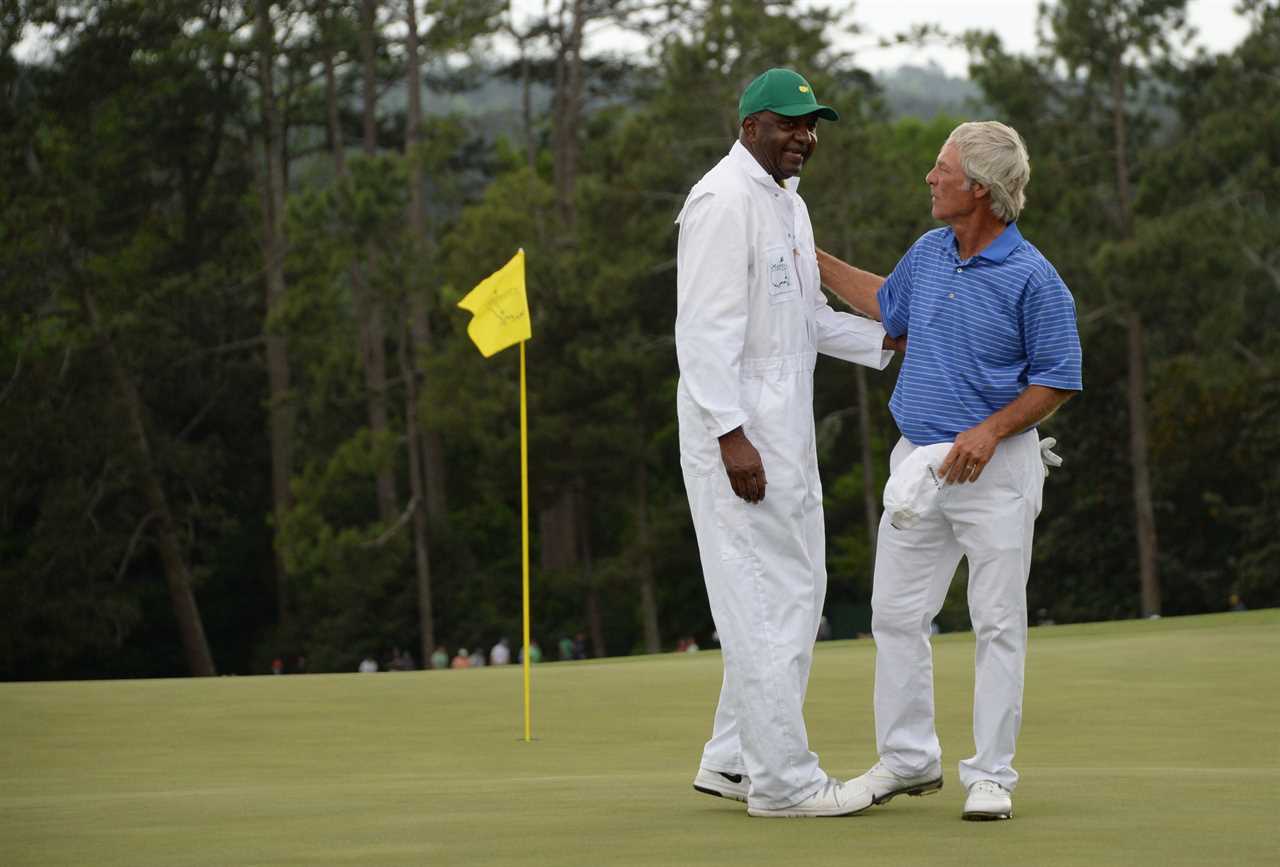
The caddie retired in 2015
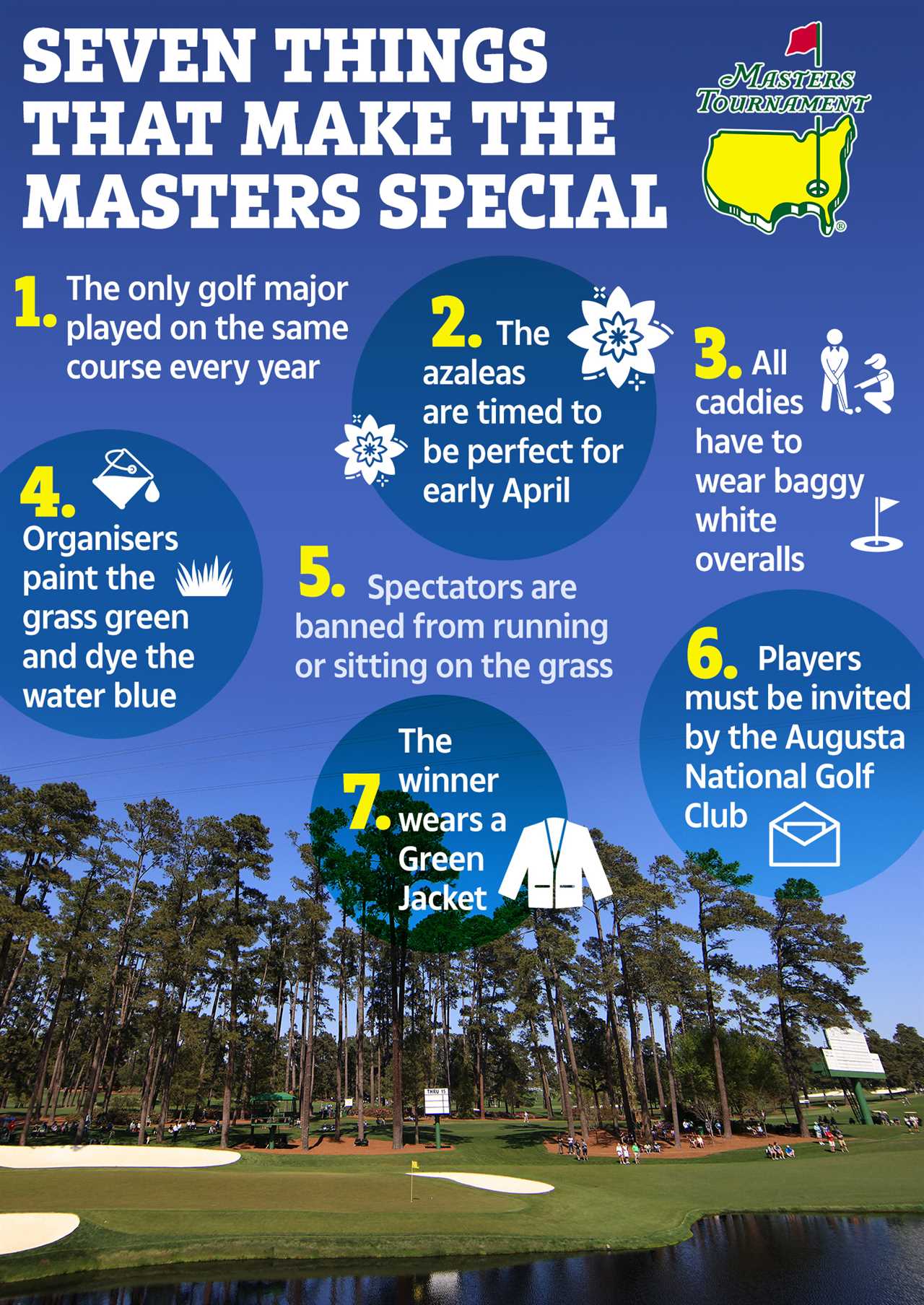

COURSE GUIDE TO ALL 18 HOLES AT AUGUSTA
 In The RoughGolf TipsPrivacy PolicyTerms And Conditions
In The RoughGolf TipsPrivacy PolicyTerms And Conditions
